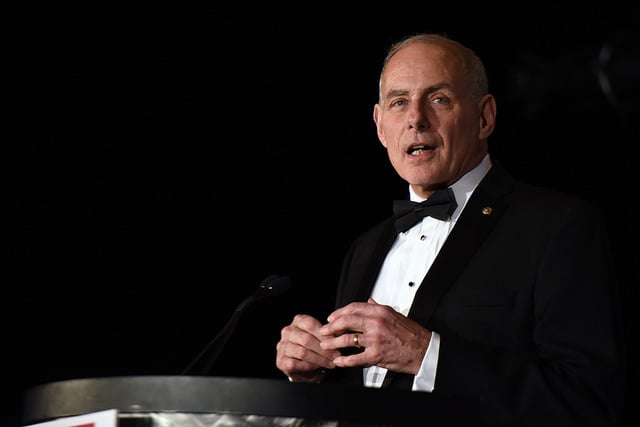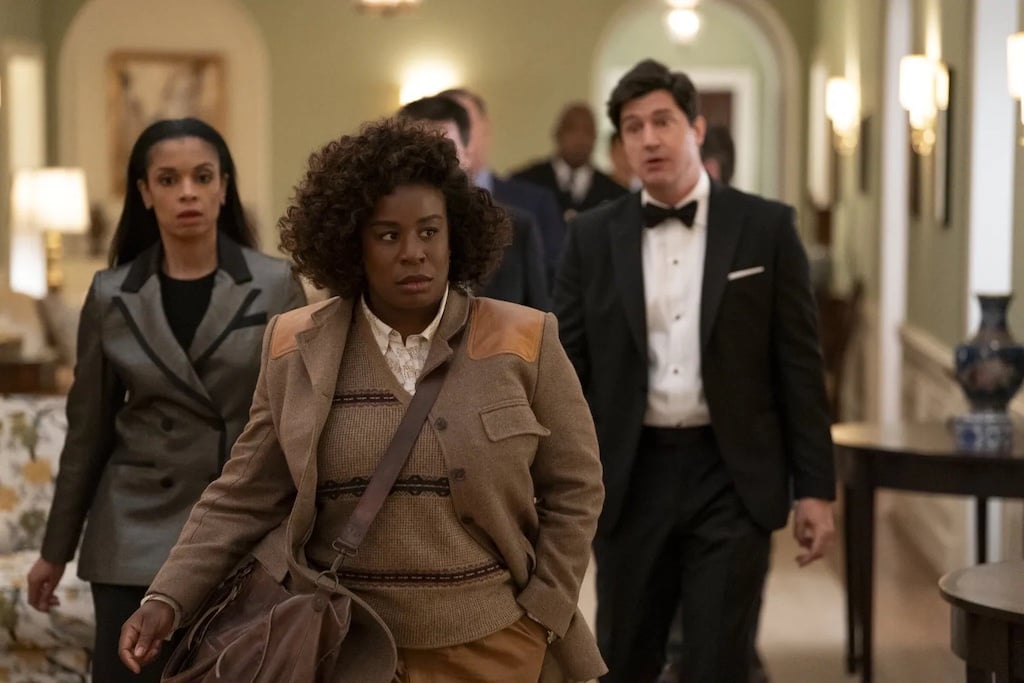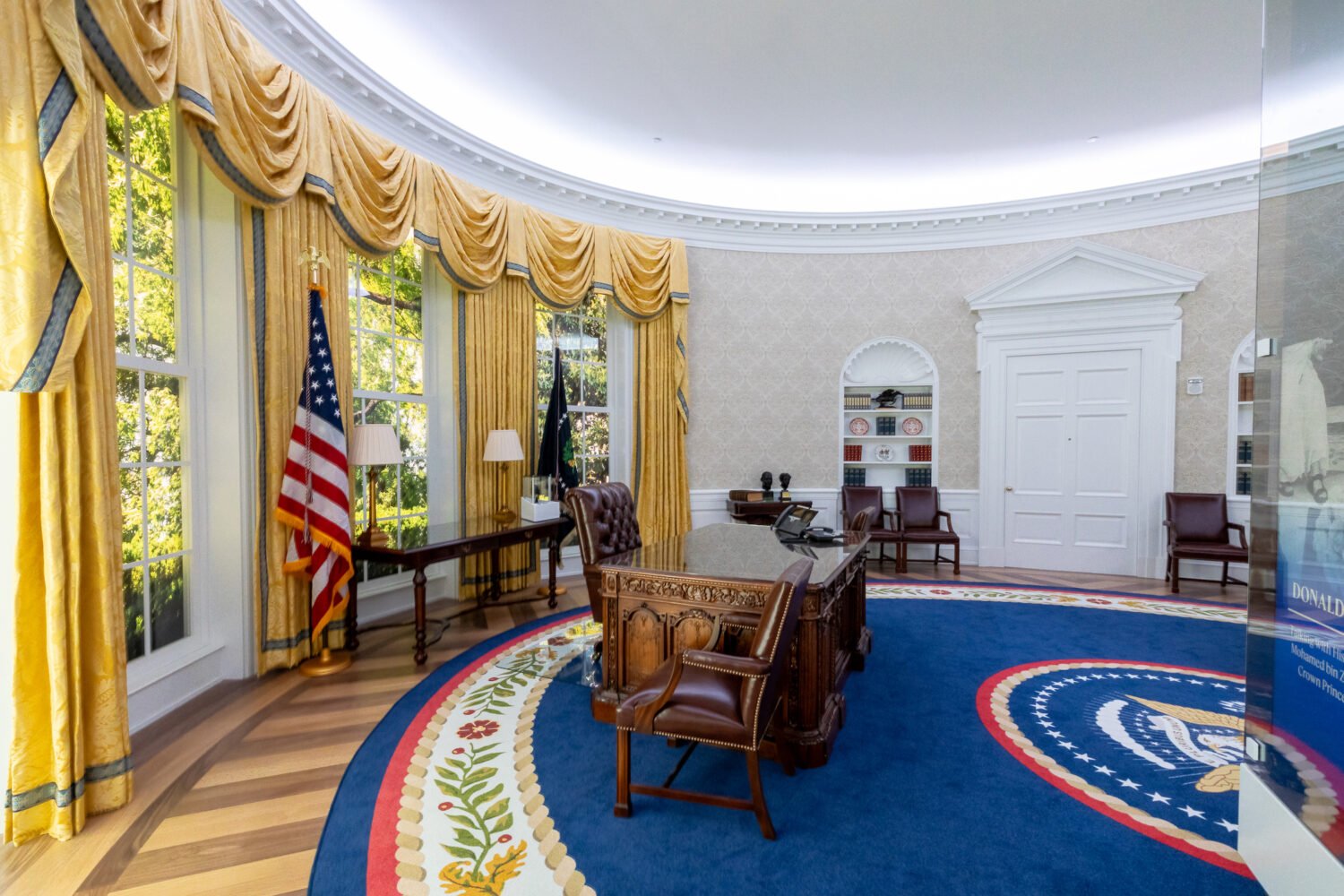The announcement that Mick Mulvaney will become acting chief of staff marks the long speculated end to the era of John Kelly.
It also marks something else: the completeness of the media’s failure in documenting Kelly to the American public, who will bid farewell to Kelly with little sense of his intrinsic motivations while in office, the values he invoked in accepting the job, what he had hoped to accomplish by taking it in the first place—and, most important, whether he thinks he succeeded.
After 18 months as the most relevant figure in Washington politics—and, at times, perhaps the most powerful person in American government—Kelly managed to escape from his time in office without a marquee print newspaper feature, stylized television documentary, radio or podcast investigation, or, with one or two exceptions, comprehensive magazine profile.
The reason is as clear, and simple, as the press’s oversight itself: Kelly, to his unfathomable good fortune, managed to fall into a kind of political Einstein-Rosen Bridge that reconfigured space and time, jettisoning the man into a permanently counterfactual netherworld in which, for the past 18 months, Kelly was always on the verge of being fired tomorrow, next week, next month, or yesterday, at least in the minds of editors.
In magazine land, this air ball was only brought into starker relief by the numerous admirable and unsparing accounts of Trumpian dramatis personae that the public enjoyed during the past two years. The New Yorker alone has offered deeply reported profiles on Sarah Huckabee Sanders, Rex Tillerson, and—closer to Kelly’s orbit—James Mattis, Michael Flynn, and H.R. McMaster. The latter example was published shortly after McMaster was fired and perhaps offered a warning about the consequences of mistiming a magazine profile that would otherwise require months of sustained effort.
The principal exceptions were two: First, the Time cover story in August 2017, which cycled hurriedly through Kelly’s rise through the military ranks to DHS, and was forward-looking—Will he or won’t he rein in Trump?—in its thesis. Second, Matt Flegenheimer’s significant February 2018 profile of Kelly in the New York Times Magazine. That profile arrived in the midst of the Rob Porter scandal—one of the many that were supposed to bring Kelly down—and offers a necessary bureaucratic snapshot of the moment that birthed it. Yet neither seemed to quite crack open what made Kelly tick, what he believed, or who he was. That’s a job that can’t be pinned on one profile or writer, of course, but instead manifests as a collective burden. (That’s especially true when your subject won’t play along, and his principal aim with the media, as Flegenheimer begins the piece, is to “tend to the mystique.”)
That’s not to diminish the efforts to cover Kelly on other fronts. The public enjoyed no shortage of the superlative reporting that has defined the Trump era, from disputes and fissures in the heart of the West Wing to Kelly’s waning influence there. Not to mention a surplus of think pieces, some of which brought real insight into the most unusual chief of staff tenure in recent memory, including our obsession with how long he would last. Occasionally, we were offered brief windows into how Kelly was affected by the death of his son in Afghanistan, the roots of his leadership style, and the importance of the Boston neighborhood where he grew up.
Television hasn’t been totally absent from the picture, either. It was a sit-down interview with Kelly—yes, even on terrain as friendly as Laura Ingraham’s on Fox—that aired his revisionist views about slavery and the Civil War, and his refusal to apologize for his factually uninhibited attack on Congresswoman Frederica Wilson, using core assertions against her that were plainly false.
Those were revealing moments. But on less friendly terrain, deeper dives into Kelly’s worldview, even after 18 months in office, are absent: nothing approaching CNN’s documentary on John McCain, for instance; MSNBC’s Headliners series, which has run critical profiles of Michael Flynn, Jared Kushner, and Michael Cohen; or the 60 Minutes treatment on CBS.
So there’s no shortage of reporting that informed the public on what Kelly did in the White House. But these stories only begin to ask the core questions, and riddles, about who Kelly was in the White House. With the use of a time portal and hindsight, assignment editors might have commissioned the kind of full-dress profile that didn’t answer simply what the chief of staff was up to, but why. Why would a man who eschewed conspiracy theories in one realm—he fiercely resisted having Kris Kobach installed as his number two at DHS, for instance—embrace them so readily in immigration (where he once publicly warned that Ebola would spark a stampede over the border)? What is the connection between the blue-collar Boston circumstances of Kelly’s upbringing and the promises that Trumpism purports to offer that demographic? If Kelly really is a partisan—as suggested by his occasional paeans to Trumpism, such as the Wilson and Civil War episodes—then why did he say in 2016 that he would be perfectly willing to serve in a would-be Clinton administration? How did he process grief after the death of his son in 2010? The death of his brother, to AIDS, in 2006? Did either impact his political outlook? What books shaped him? Did Kelly even vote for Donald Trump in 2016? Given that the man once described working for his current boss as a punishment from God—yet continued to do it—what does John Kelly actually believe?
We don’t really know, at least not much. That’s not a failure of any one story or profile but a failure to coalesce enough of them. And while we were lucky to get profiles at the outset and midpoint of Kelly’s tenure, the final trimester was probably the most interesting , as Kelly’s own morale bowed and the yawning gap between his ideals and present reality would have been most apparent.
We won’t know how many other magazine profiles or HBO documentaries lay on the horizon. Things might be somewhat different, for instance, had Olivia Nuzzi at New York magazine—who was in the midst of reporting a profile on Kelly in October, when she was pulled into the Oval Office to be dissuaded from doing so—finished the piece. In the diaristic dispatch that emerged from that episode, Nuzzi gestured at the questions she herself would have tried to answer in pursuing a profile of Kelly: How he had kept his job despite his (and Trump’s) dissatisfaction with it; whether he had the personal will, or political instincts, to fight off impeachment proceedings.
Perhaps that would have been the profile in which the public finally learned the answer to the central question at the heart of Kelly’s tenure: why he actually took the job and why he remained in it, despite being so outwardly miserable.
All this matters for two reasons. The first is simply the Trump era itself, and the heightened urgency of parsing the beliefs of anyone in the chief-of-staff role, charged as Kelly is with bringing Trump’s ideas to fruition. That’s only amplified by the civics anomaly of a Trump administration that, in its first two years, has ceded so many core functions of the US government to a retinue of current and former military personnel.
But the other reason implicates Kelly directly. As Josh Marshall at TPM has coined it, Kelly embodied “Total Quality Trumpism.” In this telling, Total Quality Trumpism is a political worldview categorically different from that of other Trump cabinet officials, such as Rex Tillerson or Steve Mnuchin. Unlike those principals, Kelly didn’t appear to be in the business of whitewashing or mitigating the core animating principles of Trump’s worldview—but rather of facilitating them, with a patina of regimented order and “adult-in-the-room” gloss.
But that’s just one theory. Is it actually true?
We won’t get complete answers to these questions until the first comprehensive histories of the Trump administration are published—or worse, when Kelly’s post-mortem book deal comes about. Kelly, in turn, will have a big head start in the intellectual project that will define him for the next 20 years: formulating the narrative that it was his selflessness, patriotism, and sense of civic duty that propelled him to take the job—that the damage of Trumpism would have been far worse without his stewardship.
And because the public never really got to know him, John Kelly might just get that wish.
















